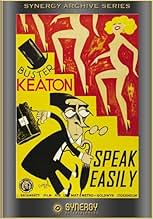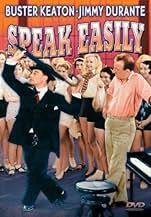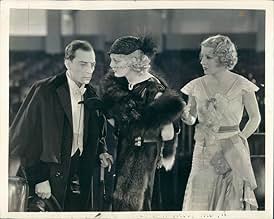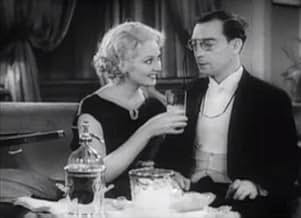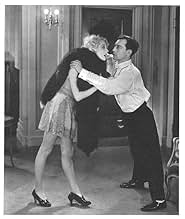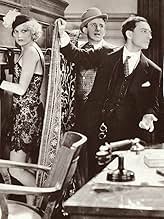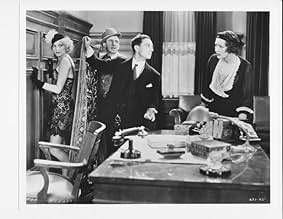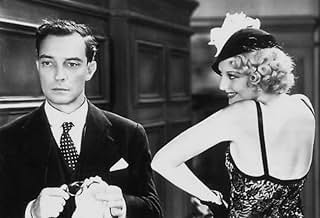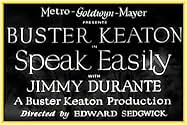VALUTAZIONE IMDb
5,8/10
1246
LA TUA VALUTAZIONE
Aggiungi una trama nella tua linguaA timid professor inherits a large sum of money and decides to fund a terrible musical.A timid professor inherits a large sum of money and decides to fund a terrible musical.A timid professor inherits a large sum of money and decides to fund a terrible musical.
- Regia
- Sceneggiatura
- Star
Loretta Andrews
- Chorus Girl
- (non citato nei titoli originali)
Oscar Apfel
- Lawyer's Representative
- (non citato nei titoli originali)
Reginald Barlow
- Billington
- (non citato nei titoli originali)
Jack Baxley
- Tom - Sheriff's Deputy
- (non citato nei titoli originali)
Sidney Bracey
- Jenkins
- (non citato nei titoli originali)
Jim Farley
- Station Agent
- (non citato nei titoli originali)
DeWitt Jennings
- Sheriff of Lincoln County
- (non citato nei titoli originali)
Fred Kelsey
- Process Server
- (non citato nei titoli originali)
Recensioni in evidenza
Despite what other users have said about this movie, I found it delightful and very funny. Buster Keaton plays a college professor who thinks he has become a rich man. He decides to invest money in a bad show because he likes one of the girls in the show, and he takes the show to Broadway. Buster Keaton has a very nice speaking voice, and this is the first "talkie" of his that I have seen. Of note also in the film is Thelma Todd. She plays a golddigger, but her performance is very funny and holds up today just as well as it did then. The scene where she and Keaton get drunk I found hysterical.
This film really, really depressed me. Not only was it completely unfunny, it did absolutely nothing with it's star Buster Keaton. It was odd to hear his voice, but even stranger to see him not do any of the routine that he's so famous for. Thelma Todd is also dreadfully waisted. She's beautiful, as always, but that's the film's only redeeming quality. And the story was atrocious. I've never seen a film so padded (well, maybe Blue Crush). This one should only be seen so people will see how hard the advent of sound struck film history. If it had come thirty years later, after more work and evolution, films like Speak Easily might never have been made.
There have been a lot of very perceptive comments made by previous reviewers and I don't have much to add.
I have to agree with those who said it was a rather flat comedy with flashes of wit and charm.
Keaton gives an interesting performance as Professor Post. It seems a bit of a parody on Harold Lloyd, but also a precursor to Danny Kay's professor character. The movie is wise when it centers itself around him, but it seems that the scriptwriter wrote it for Keaton to improvise wildly, only to find Keaton sticking to the script. I imagine there was some tension between him and the director, with Keaton simply giving in and following the director's orders.
Thelma Todd stands out. She lights up the screen and exudes a knowing sophistication that only a few other actresses (Jean Harlow, Mae West and Katherine Hepburn) reached.
Again, I don't think that anybody but Buster Keaton fans will enjoy the movie and only Buster Keaton fans will have a few laughs out of it.
I have to agree with those who said it was a rather flat comedy with flashes of wit and charm.
Keaton gives an interesting performance as Professor Post. It seems a bit of a parody on Harold Lloyd, but also a precursor to Danny Kay's professor character. The movie is wise when it centers itself around him, but it seems that the scriptwriter wrote it for Keaton to improvise wildly, only to find Keaton sticking to the script. I imagine there was some tension between him and the director, with Keaton simply giving in and following the director's orders.
Thelma Todd stands out. She lights up the screen and exudes a knowing sophistication that only a few other actresses (Jean Harlow, Mae West and Katherine Hepburn) reached.
Again, I don't think that anybody but Buster Keaton fans will enjoy the movie and only Buster Keaton fans will have a few laughs out of it.
Thelma Todd brings burlesque to a script replete with gags, some of them funny, as when Keaton carries her folded up looking like a filled bag. Pre-Code license pervades and Todd takes this to new realms. The Broadway show as conceived is quite brilliant with snow flakes, costumes, sets, dancers, music, balloons and genuine art, for a few moments, before Keaton tears it all apart. The Producers, Night at the Opera, owe somewhat. You don't get such a steady stream of sight gags and stunts, as with the trains, unless it's Keaton. Not many big laughs, but surprising in its disregard for conventions of good taste audiences might expect to see lived up at an MGM movie. Hedda Hopper does a great job as the tasteful Mrs. Peets.
What is the most harrowing movie ever made? The gynaecological nightmare of 'Cries and Whispers'? The acid psychodramas of Fassbinder? The discomfiting black comedy of 'Last House on the left? I'm sure for that portion of the film-loving public that tie their masts to the good ship Buster Keaton, there is only one answer - any one of his sound films.
I don't know what flayed my soul more poignantly in this movie - the grounding of Keaton's intricate and expansive physical art to humdrum slapstick; the painful hesitation of this master filmmaker with dialogue - not that he hasn't a lovely, comic voice, or that he can't make dialogue funny; it's just that the studio don't seem to have given him enough takes, and so he seems to be trying to remember his lines before he delivers, which only makes him - Keaton, not his character, look silly; or is it the humiliation of seeing Keaton caught up in a tawdry sex farce, when he has given us some of the richest accounts of romantic frustration in film?
No, I know what was most disturbing - having to watch Buster Keaton, cinema's greatest comedian, sit aside to observe Jimmy Durante doing his schtick. It is horrors such as this that get yer Dantes composing yer Infernos.
MGM seem to have got the curious idea that the best way to adapt Keaton to sound was to turn him into a Marx Brother, complete with verbal pedantry, elaborate, tedious 'clowning', shambolic slapstick, theatrical setting, triumph through chaos, and Thelma Todd. Keaton was just not that sort of comic, and where Groucho's malicious tongue and gleeful opportunism might just have made this plot work, Buster's socially inept professor can't, he is too studied and predictable.
What Buster needed was to be allowed experiment like Lang in 'M', or Rene Clair; he would never have tried to hold back the tide like Chaplin. When a film like 'The General' is alluded to - messing about with trains - the loss becomes even more apparent.
And the thing is, in patches amid the flat direction, the film isn't all that bad - there is an excellent jolt when a camera on the bus leaves Keaton alone at a railway station; and the denouement, if hardly original, is at least livelier than what went before. There is something almost endearing about the way Keaton slows down a plot that needs all the zip it can get.
There is a film in here about loneliness, emotionally paralysing order, the numbing effects of education etc., struggling to get out. The best way to appreciate this film is to watch not the narrative of Professor TZ Post, but of emasculated genius Buster Keaton, trapped in a prison of mediocrity, confounded by new technology, mocked by a malevolent fate (in this case the studio), retaining a stoical grace. Looked at like that, it becomes a kind of masterpiece.
I don't know what flayed my soul more poignantly in this movie - the grounding of Keaton's intricate and expansive physical art to humdrum slapstick; the painful hesitation of this master filmmaker with dialogue - not that he hasn't a lovely, comic voice, or that he can't make dialogue funny; it's just that the studio don't seem to have given him enough takes, and so he seems to be trying to remember his lines before he delivers, which only makes him - Keaton, not his character, look silly; or is it the humiliation of seeing Keaton caught up in a tawdry sex farce, when he has given us some of the richest accounts of romantic frustration in film?
No, I know what was most disturbing - having to watch Buster Keaton, cinema's greatest comedian, sit aside to observe Jimmy Durante doing his schtick. It is horrors such as this that get yer Dantes composing yer Infernos.
MGM seem to have got the curious idea that the best way to adapt Keaton to sound was to turn him into a Marx Brother, complete with verbal pedantry, elaborate, tedious 'clowning', shambolic slapstick, theatrical setting, triumph through chaos, and Thelma Todd. Keaton was just not that sort of comic, and where Groucho's malicious tongue and gleeful opportunism might just have made this plot work, Buster's socially inept professor can't, he is too studied and predictable.
What Buster needed was to be allowed experiment like Lang in 'M', or Rene Clair; he would never have tried to hold back the tide like Chaplin. When a film like 'The General' is alluded to - messing about with trains - the loss becomes even more apparent.
And the thing is, in patches amid the flat direction, the film isn't all that bad - there is an excellent jolt when a camera on the bus leaves Keaton alone at a railway station; and the denouement, if hardly original, is at least livelier than what went before. There is something almost endearing about the way Keaton slows down a plot that needs all the zip it can get.
There is a film in here about loneliness, emotionally paralysing order, the numbing effects of education etc., struggling to get out. The best way to appreciate this film is to watch not the narrative of Professor TZ Post, but of emasculated genius Buster Keaton, trapped in a prison of mediocrity, confounded by new technology, mocked by a malevolent fate (in this case the studio), retaining a stoical grace. Looked at like that, it becomes a kind of masterpiece.
Lo sapevi?
- QuizSecond of three films in MGM's pairing of Buster Keaton and Jimmy Durante as a comedy team. The other pictures were Chi la dura la vince (1932) and Viva la birra (1933).
- BlooperWhile Professor Post (Buster Keaton) is dragged by the train, clutching his luggage, his hat flies off and he is unable to grab it. In the next shot, his hat is once again firmly on his head.
- Citazioni
Eleanor Espere: Tell me, Timmy. Have you ever seriously thought of marriage?
Professor Post: Yes... that's why I'm single.
- ConnessioniFeatured in C'era una volta Hollywood (1974)
- Colonne sonoreGood Times Are Here Again
(1932) (uncredited)
Music by David Snell and Charles Maxwell
Lyrics by Samuel Marx
In the score during the opening credits and at the end
Played on piano by Jimmy Durante and sung by the chorus at the opera house
Played often in the score
I più visti
Accedi per valutare e creare un elenco di titoli salvati per ottenere consigli personalizzati
Dettagli
- Tempo di esecuzione
- 1h 22min(82 min)
- Colore
- Proporzioni
- 1.37 : 1
Contribuisci a questa pagina
Suggerisci una modifica o aggiungi i contenuti mancanti

